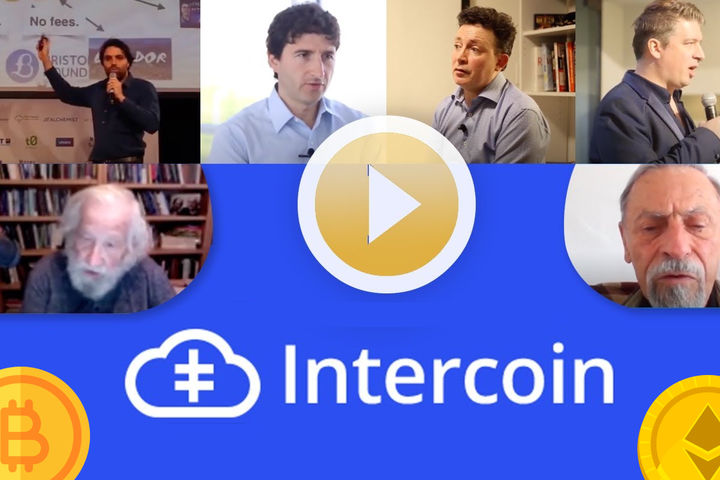How Intercoin Helps Projects Raise Money Globally

There's a famous proverb that says, "If you want to go fast, go alone. If you want to go far, go together." For early stage entrepreneurs and their investors, it's become increasingly important to not go alone in today's economy. Being able to build a community around a project can make the crucial difference between success and failure. Communities can help build momentum, attract key people and capital, manage responsibilities, and diversify risk. Ultimately, the community can kickstart a global movement--like Bitcoin and Ethereum did--that makes a lasting change in the world.
That is the vision behind Intercoin, the five-year-old project launched by Greg Magarshak, a technologist and serial entrepreneur from New York.
"People desperately need tools to self-organize," he explains. "Today, the platforms exist, but they are controlled by large corporations. Elon bought Twitter. Zuck controls Facebook. Banks issue and control our money supply." Magarshak set about to build an alternative, something that will help people around the world communicate and transact globally, without being vulnerable to middlemen, who own the infrastructure.
If Intercoin sounds like an alternative to Bitcoin, that's because it was designed that way. "There's a lot that needed to be reimagined," says Magarshak. While Bitcoin presents one coin for the whole world, Intercoin was designed to let any community launch their own, private currency. Intercoin recently launched a series of blockchain-based smart contracts to help communities democratically manage their currencies and local economies through fiscal and monetary policy on the blockchain. They can vote, distribute payroll, run contests, and more, using blockchain technology that tracks transactions and enforces rules, preventing anyone from misusing the funds.
When it comes to raising money, blockchain-based solutions, including Intercoin's, bring some distinct advantages. Investors into a project can see how their money is being used, and can also rely on guarantees in the smart contract when it comes to yields and returns. Meanwhile, users of the internal currency are able to transact on a global network with clear rule enforcement, without having to worry about arbitrary abuses by those controlling the network.
Three decades ago, the Web democratized access to publishing, allowing people to instantly publish worldwide. Since then, Web 2.0 has sought to do the same for multi-directional communication and collaboration. But, Magarshak says it got captured by private interests operating in the dominant economic system.
"The whole business of a venture capitalist is to find early-stage companies, and prop up money-losing economics in order to sell the shares to the public in an IPO. The company could have built an incredible platform, but it will now have to extract rents from all sides of the ecosystem forever, to satisfy Wall Street earnings calls. There is a permanent shareholder class, who would not want to see the platform become free and open source as this would mean their shares don't capture as much value from the ecosystem."
In building its alternative, Intercoin drew on "Web3" technologies developed in the last few years. Smart contracts allow new types of arrangements, such as "utility token," which are sold for consumptive use and whose purchasers cannot exercise the types of control over the company as shareholders do. This leads to a different dynamic, where the platform ends up being owned by the community, and the incentives become more organically aligned with the platform participants. Rather than one company owning all the infrastructure, multiple parties can join the ecosystem, as can be seen with an increasing number of projects like BitTorrent, IPFS, and their tokens (BTT and FileCoin, respectively).
Intercoin was spun off from an earlier company founded by Magarshak and his team in 2011, called Qbix. Over the last decade, their apps have gone on to attract 10 million people in over 100 countries, and been translated into 15 languages. Without ever taking investment from VCs, Qbix gradually built an open, decentralized social networking platform. On top of this Web2 platform, Intercoin built the Web3 system of decentralized finance, or DeFi. The software allows people to raise money in new ways without shareholders or banks.
It remains to be seen how regulators around the world will view blockchain solutions to established problems. The Securities and Exchange Commission (SEC) has been actively involved in court cases to make sure projects follow the securities laws when issuing and selling tokens. But they've also published no-action letters about crypto projects, listing criteria that would make a coin not be considered a security. The team at Intercoin has partnered with former SEC lawyers, and economists, when designing their solutions. They believe that, by following the framework laid out in the no-action letters, they can help projects raise money without running afoul of the SEC. In addition, they consider other agencies, such as the Financial Crimes Enforcement Network, building software around their 2019 guidelines to the crypto industry. More than any other crypto company, Intercoin seems to be incorporating global regulatory frameworks into their design process, to ensure fundraising.
As their team puts it: "Qbix moves the web from feudalism to a free market. You have your choice of landlord, but you still have a landlord. Intercoin, on the other hand, decentralizes further, where the community is run by the members themselves. Our goal is to bring power to the people. Intercoin is the people's coin."





















